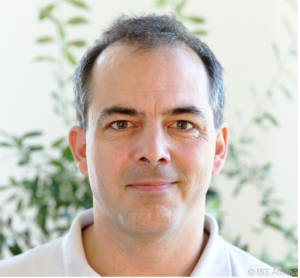SWAMMERDAM LECTURE - Friday, January 26th, 2024, at 16:00
Prof. dr. Tim Vogels
On the purpose and origin of spontaneous neural activity: Action potentials that may serve neuronal energy homeostasis and protect from reactive oxygen species.

| Affiliation | Institute of Science and Technology (IST), Austria
|
| Date / time | Lecture on January 26th 2024 at 16:00 In addition, more information on a lunch meeting with prof. dr. Tim Vogels can be found below. |
| Host | Jorge Mejias (UvA) |
| Location | Science Park 904 (room C0.05), FNWI, University of Amsterdam. |
| Zoom link | The Swammerdam lectures will be held live, in case you are not able to attend in person, please contact k.hubregtse@vu.nl |
So-called spontaneous activity is a central hallmark of most nervous systems. Such non-causal firing is contrary to the tenet of spikes as a means of communication, and its purpose remains unclear. We propose that non-input driven firing can serve as a release valve to protect neurons from the toxic conditions arising in mitochondria from lower-than-baseline energy consumption. We built a set of models that incorporate homeostatic control of metabolic products–ATP, ADP, and reactive oxygen species, among others–by changes in firing. Our theory accounts for key features of neuronal activity observed in many studies that range from ion channels function all the way to resting state dynamics. We propose an integrated, crucial role for metabolic spiking that links metabolic homeostasis and neuronal function, and makes testable predictions. Finally, we link the hallmark symptom of Parkinson’s Disease–the absence of dopamine in the striatum–with failure to initiate metabolic spikes.
Short bio: Prof. dr. Tim Vogels is a Professor of Theoretical Neuroscience and research leader at the Institute of Science & Technology (IST) Austria. He studied Physics at the Technical University of Berlin and received a PhD in neuroscience from Brandeis University in 2007. After a postdoctoral stay at Columbia University and École Polytechnique Fédérale de Lausanne (EPFL) he arrived in Oxford in 2013, where he led a research group in Theoretical and Computational Neuroscience at the Centre for Neural Circuits & Behaviour (CNCB), part of the Department of Physiology, Anatomy and Genetics (DPAG), University of Oxford. In 2020, he moved to IST Austria, where he currently works with his group to elucidate theoretical and computational principles of neural systems, with a special focus on plasticity, learning and memory. In keeping with open science guiding values and principles, Prof. Vogels is actively involved in co-founding and managing various such initiatives, including the NeuroTheory initiative (with Rafal Bogacz), the IBRO-Simons Computational Neuroscience Imbizo in Cape Town, and World Wide Neuro, a website resource for the dissemination and archival of open access scientific seminars.
Lunch meeting with Prof. Vogels
At noon, we will organize a lunch meeting at Science Park 904 (SILS, UvA) with our invited speaker. Prof. Vogels will be open to talk and answer questions about research topics, but also about his trajectory from early career to consolidated researcher, and the many open science initiatives that he’s involved with. Interested PhD students and postdocs are encouraged to sign up in the link below:
The selection of participants will be on a first-come, first-serve basis. The allocated time is up to one hour.

